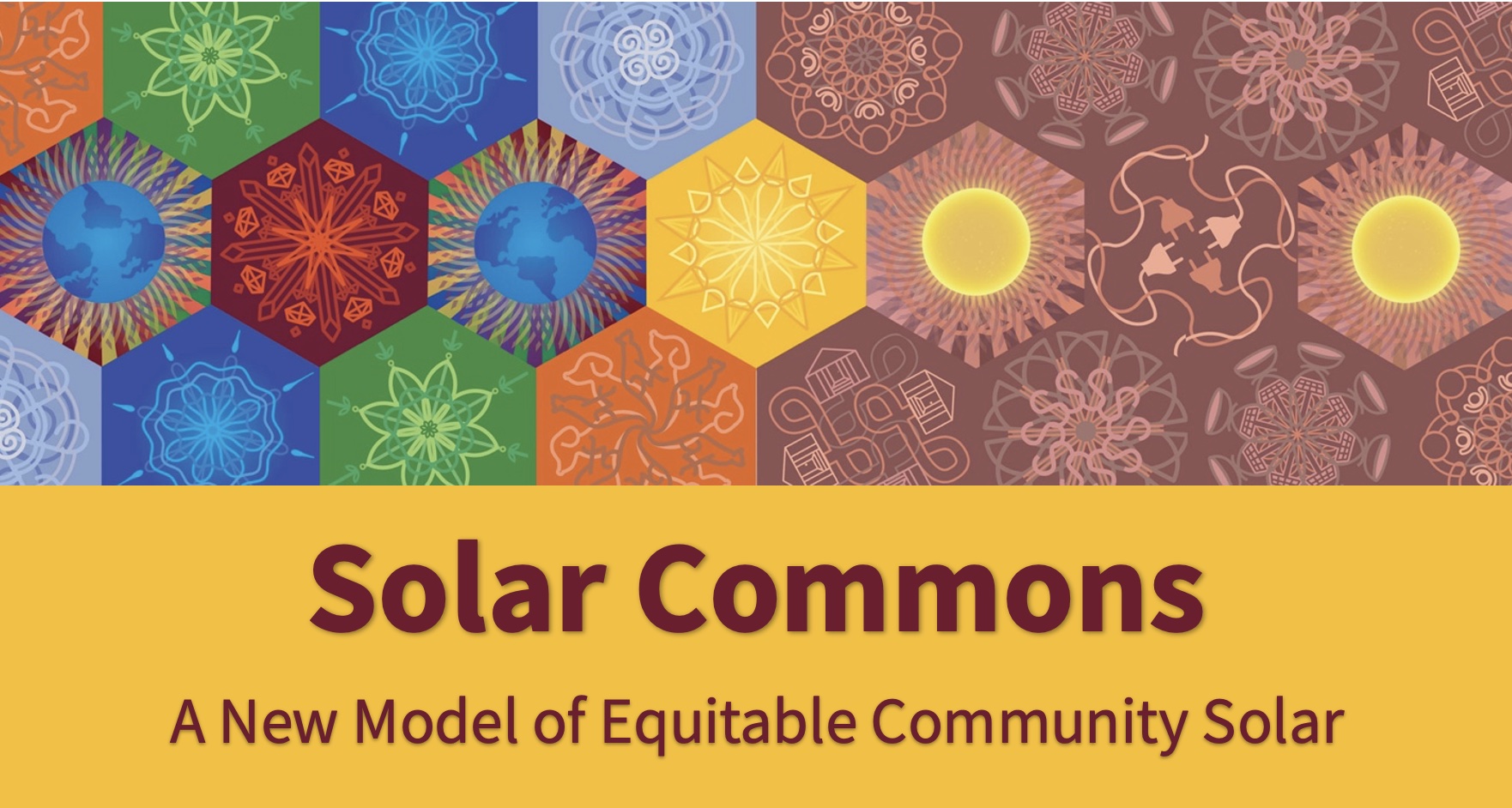Solar energy is poised to become a significant part of Minnesota’s transition to 100% clean energy. However, current solar deployment in the state is mainly serving high-income households with adequate rooftops (household scale) or investor-owned entities building industrial scale “solar farms,” distant from point of use and facing legitimate concerns about negative impacts on farmland in rural Minnesota. In Minnesota, and more generally in the U.S., solar energy deployment is missing the legal and governance tools for community scale (500 kW) and community-owned solar that can more equitably distribute solar goods/benefits and avoid solar bads.
Associate Professor Kathryn Milun (Studies in Justice, Culture, and Social Change, U of M Duluth; Minnesota Design Center) and Jonee Brigham (Minnesota Design Center) are working on a project called “Co-Designing Peer-Governance Dashboard Tools for Equitable Community Solar Ownership: Advancing a More Just & Sustainable Energy Transition in MN,” that is working with the Solar Commons Research Project (SCRP) at the MN Design Center at the University of Minnesota. The SCRP is a community-engaged research project that empirically demonstrates a new kind of solar benefit available from community scale solar: pooled solar savings on a host’s electric bill can become a steady, 20+ year revenue stream sent to a social wealth trust fund that supports a community’s reparative justice work. With the right legal agreements and with a user-friendly digital dashboard accounting system, a solar host can share solar savings with nearby, underserved community partners. The sun’s free commonwealth becomes solar savings that can be shared and peer governed by underserved communities to serve their locally determined needs. U-Spatial is joining the Solar Commons research team to co-design and test its digital peer-governance dashboard with rural and urban community partners: in rural Minnesota, proposed solar host Heliene, Inc. (Minnesota’s largest solar manufacturing plant located on the Iron Range) and trust beneficiary Bois Forte Food Sovereignty Group (forty miles from Heliene); in urban Minnesota, proposed solar host University of Minnesota campus and a trust beneficiary in a local Justice 40 Underserved Community Census Tract. The community co-designed dashboard will make “solar commoning” a new, transparent, trustworthy way to share benefits of solar energy in Minnesota and the nation.
This project recently received a Research Computing Seed Grant. RC Seed Grant funds are intended to promote, catalyze, accelerate and advance U of M-based informatics research in areas related to the MnDRIVE initiative, so that U of M faculty and staff are well prepared to compete for longer term external funding opportunities. This Seed Grant falls under the Environment research area of the MnDRIVE initiative.
Small (up to $10,000) seed grants are awarded throughout the year and applications can be submitted at any time. Medium ($10,001 - $50,000) and large ($50,001 - $120,000) seed grants are awarded semiannually – the spring submission deadline is the last Friday of April and the fall deadline is the last Friday of October.
